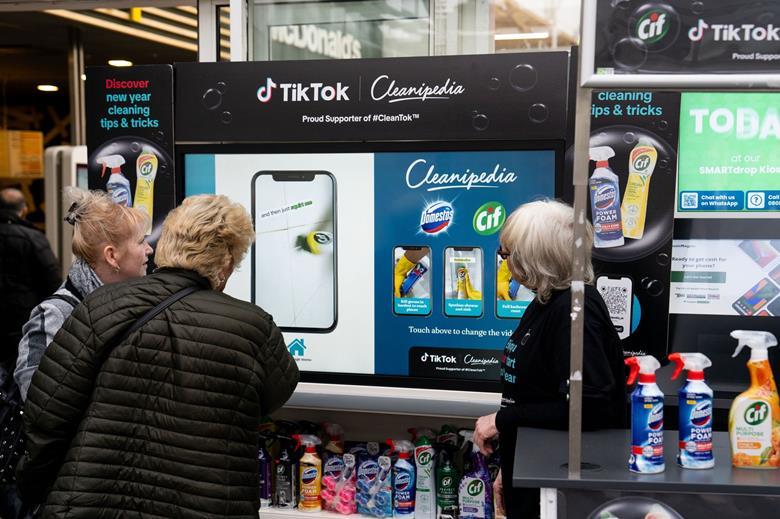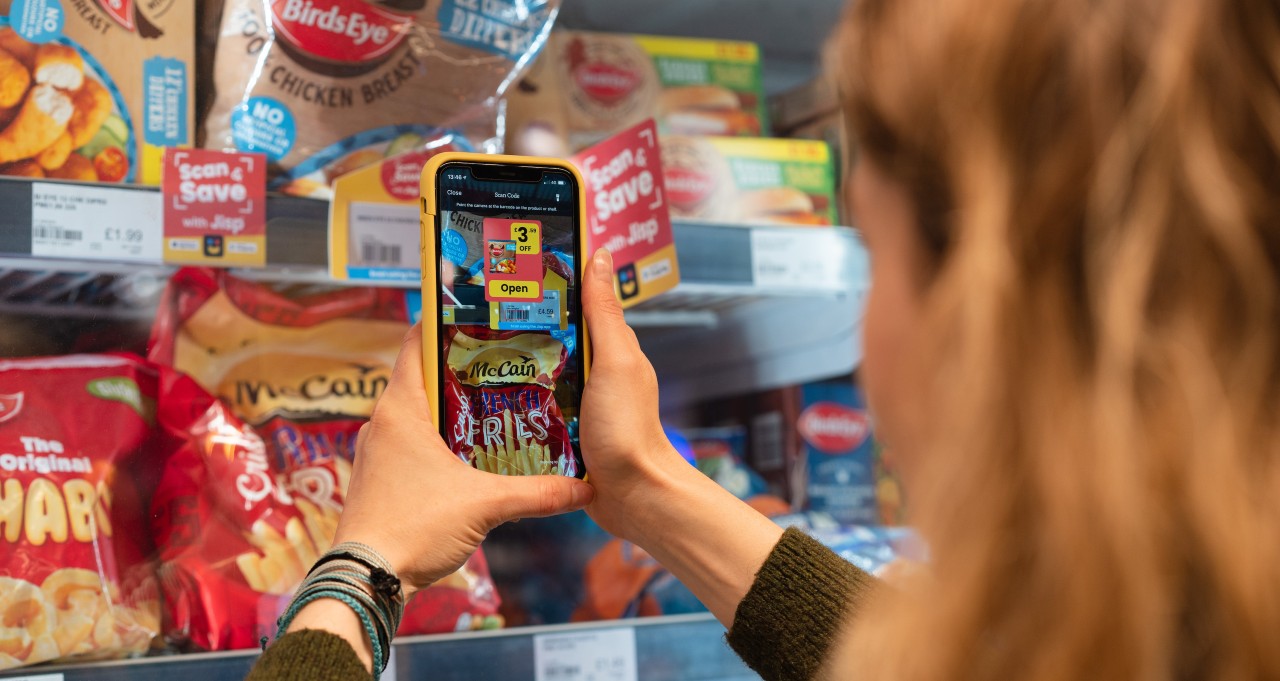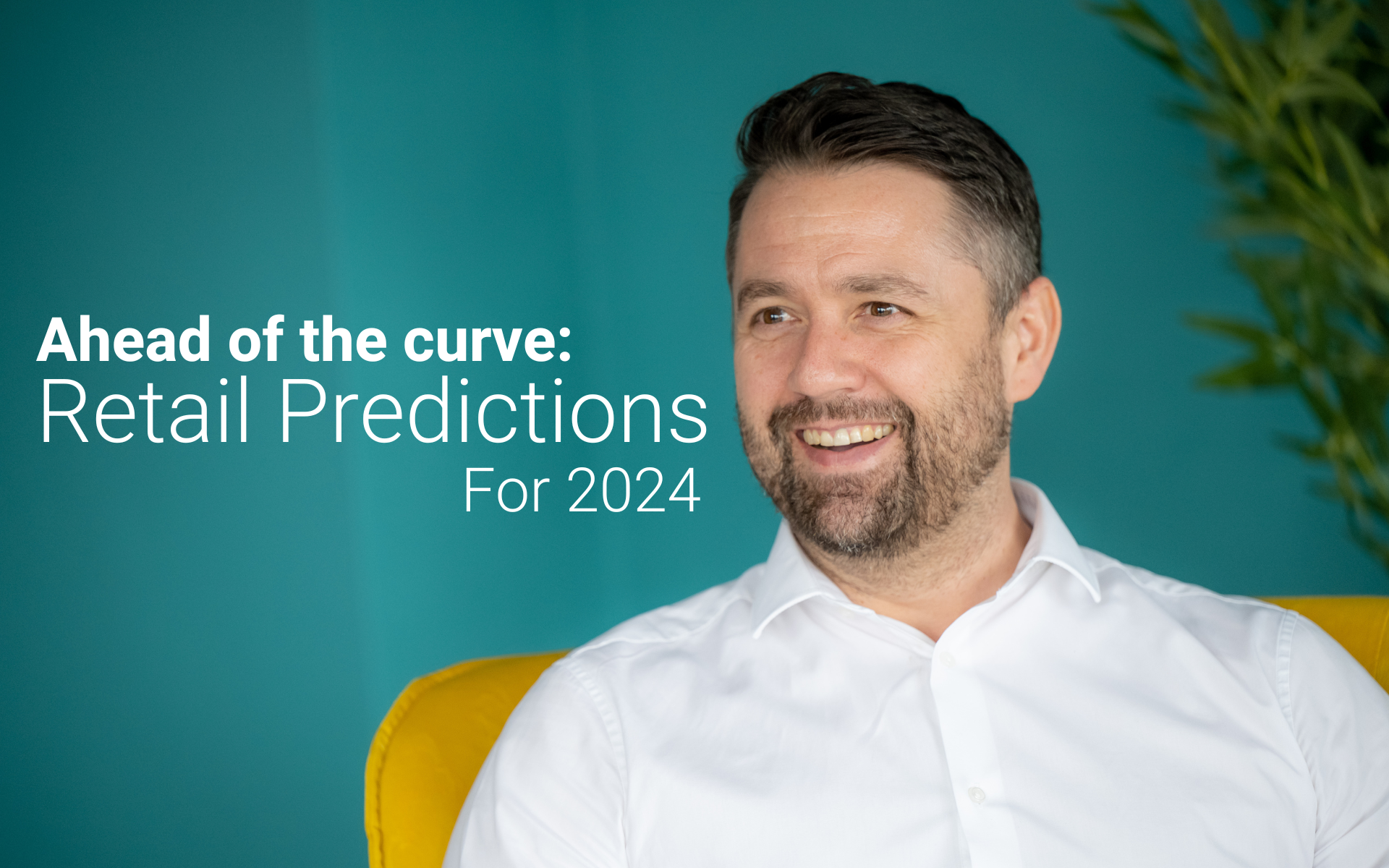It’s safe to say that the retail landscape is something that continues to be unpredictable. As a business, we’re kept on our toes, ensuring that we’re responding to new developments and challenges as quickly and efficiently as possible. In the past year, we’ve had some significant key developments, some for better, some for worse, all of which continue to shape the environment of retail to this day. From the cost-of-living crisis to the emergence of AI, retailers are being forced to embrace these changes to maintain their business- responding to market dynamics will be essential for survival and growth.
In this article, we chat with Commercial Director, James Lamplugh who gives his retail predictions in the UK. He discusses key topics such as technological advancements, consumer behaviour shifts, economic conditions, and regulatory changes.
Read on to discover his thoughts on the key trends we’re likely to see and what we can expect over the next decade.
Our predictions: what do you think is ahead for retailers?
A: Something that I think will continue to dominate, is the rise of e-commerce. It’s safe to say that many people appreciate the convenience and safety of shopping online, especially after dealing with the challenges that COVID-19 brought to consumers.
The next generation of e-commerce
It was recently reported that eCommerce revenues in the UK are expected to have an annual average growth rate of 12.6% by 2025, showing that there are no signs of this slowing down. Because of this, we can expect traditional retailers to see the value of enhancing their online presence or adopting omnichannel strategies to remain competitive. Supporting this, it was recently discovered that physical interactions throughout the customer journey contribute significantly to UK ecommerce sales.
Data analytics and artificial intelligence
Following on from this, retailers are expected to invest more in data analytics and artificial intelligence to offer personalised shopping experiences. This could include tailored product recommendations, customised promotions, and targeted marketing campaigns – all of which stem from the digital loyalty campaigns many retailers are investing in. Speaking of AI, expect to see a rise in the integration of technologies such as augmented reality (AR), virtual reality (VR), and artificial intelligence (AI) which enhance the shopping experience both online and in-store. For example, AR-enabled try-on features for clothing or virtual showroom experiences. In the retail world, we’ve seen the use of Image Recognition to help stores improve availability, helping to maximise the productivity of staff in stores. A great example of this is Reapp’s Performance software which is fueled by image recognition technology, enabling field teams with the power to view shelf stock levels and tap into data straight from the shelf. This means that brands can drive in-store performance and identify upcoming problems to deliver proactive solutions, offering maximum ROI for every call.
Experiential shopping
Creating immersive and experiential shopping environments to keep the footfall high in stores will also continue to be a focus. This could involve interactive displays, in-store events, and unique product demonstrations, building on the current strategy of in-store concessions. There are now several agencies operating in the UK offering brands this type of retailer engagement, especially new-to-market products. We’ve seen a great example of this with the recent collaboration with Unilever and Tik Tok which saw interactive digital screens placed at the front of the store to promote selected household brands.

The impact of the cost-of-living
Deloitte recently reported that the cost-of-living crisis had a significant impact on consumers making more sustainable choices by buying more second-hand items and paying more for longer-lasting products. It was reported that last year, 30% of customers stopped buying certain products due to ethical or sustainability related concerns. Now more than ever, there is growing consumer awareness and demand for sustainable and ethically sourced products and suppliers. Retailers will likely face pressure to adopt environmentally friendly practices throughout their supply chains and offer more sustainable product options, which in turn will put pressure on suppliers to make this a key part of their own strategy.
Something notable to consider is that direct-to-consumer (DTC) brands are gaining momentum. They successfully bypass traditional retail channels and establish direct relationships with consumers. This trend is likely to continue, challenging traditional retailers to adapt their traditional business models. We can already see this with several leading impulse brands within the convenience sector, bypassing traditional wholesale RTM.
Regulatory changes
As we know, retailers need to stay updated on regulatory changes, including those related to data privacy, consumer protection, and sustainability standards. Compliance with regulations such as GDPR (General Data Protection Regulation), HFSS, and evolving environmental regulations will be crucial. In October 2025, the UK is set to regulate volume and advertising for HFSS products after the delay in 2022. Brands that fail to find a solution to the current HFSS regulations will see their relevance to UK retailers reduce, and volumes impacted.
Overall, the future of UK retail will be shaped by the interplay of technological innovation, shifting consumer preferences, regulatory landscapes, and economic conditions. Retailers that embrace change, prioritise customer-centric strategies, and leverage emerging technologies are likely to thrive in the evolving retail landscape.
Q: What are you expecting to see from brands in the coming months?
A: The behaviours of UK brands in the coming months will likely be influenced by various factors such as market conditions, consumer trends, regulatory changes, and global events.
Brands will continue to emphasise their purpose and values as a means of building trust and loyalty with consumers. This may involve supporting social and environmental causes, taking a stand on important issues, and communicating authentically with consumers about their values and commitments.
A great example of this is Holland & Barrett who recently launched their new charity partnership with Comic Relief.
Adding to this, UK Brands have endured significant inflation challenges over the past 3 years, driven by COVID-19, Brexit, and the global issues such as the war in Ukraine. This has driven inflation of overall food costs significantly. With inflation now a low single figure, brands are looking to find ways to drive volume back into categories. They will do this by tapping into key UK and global events (EURO’s / Olympics, etc) and retailer loyalty schemes that offer consumers the best value pricing via promotional activities. Last year Unilever established their partnership with EURO’s 2024, from this, we expect to see some activations from sponsor brands Hellmann’s, Knorr, Dove and Sure.
Following on from the disruptions caused by events such as the COVID-19 pandemic and Brexit, brands will prioritise building resilience in their supply chains. This may involve diversifying suppliers, implementing risk management strategies, and investing in technology to improve supply chain visibility and agility.
Q: What are main challenges for brands right now and how are they responding current events?
A: Several challenges confront brands in the UK at present, influenced by a variety of factors including economic conditions, regulatory changes, technological advancements, and shifting consumer preferences.
Previously, I made reference to economic uncertainty due to Brexit, global trade tensions, and the COVID-19 pandemic. Fluctuations in consumer confidence, inflationary pressures, and supply chain disruptions can impact consumer spending patterns and overall market demand. In a nutshell, volume has been supressed, which needs a clear strategy to address.
Championing tech
Brands are reviewing their own supplier base to explore more cost effective, tech led, agile solutions to help reduce costs and improve productivity. These efficiencies are required to help offset future inflationary pressure and provide a ‘war chest’ to invest back into consumer activity, ensuring they stay relevant and affordable.
Another significant challenge relates to supply chain disruptions, including raw material shortages, transportation delays, and labour shortages. These disruptions can affect production schedules, inventory management, and ultimately the ability to meet customer demand. As a result of this, brands are constantly reviewing their supplier options to ensure consistency of supply, important in a market where raw material production is inconsistent and volatile.
Brands are working with suppliers to agree longer term contracts, they are future buying which helps to set costs and ensure consistent supply. This can impact smaller brands whereas they do not have the same ability as the market leading manufacturers.
Survival of the quickest

While digital transformation presents opportunities for growth and innovation, it also poses challenges for brands, particularly those that have been slow to adapt. Brands must navigate the complexities of digital marketing, e-commerce platforms, data privacy regulations, and cybersecurity threats to remain competitive in the digital landscape.
An easy way for brands to connect to shoppers is via retailer loyalty platforms similar to Confex buying group which recently announced a partnership with retail/wholesale solutions provider Jisp, to launch its own wholesale loyalty and rewards platform for its members and their retailers. However, several category leading brands are working our their own GDPR compliant, first party data solutions, allowing them to better understand their customers and improve communications and loyalty.
Ethics-first
Shifting consumer preferences, including a growing demand for sustainability, ethical practices, and personalised experiences, present challenges for brands. Brands must adapt their products, marketing strategies, and business practices to align with evolving consumer expectations. Sustainability is quickly becoming a major factor in consumer preference for brands. Recognised accreditations such as B-Corp is a way that brands can communicate the social, environmental, and ethical standards they hold themselves accountable. Brands that fail to communicate to consumers will ultimately see their relevance and volume decline. Brands must ensure that they are on the front foot with sustainability and environmental concerns. A great example of this can be seen in CCEP where they are introducing recycled packaging, trialing bottles without labels, and fixing caps to bottles to help with recycling initiatives. Also with Aldi’s recent collaboration with Frugalpac with their recyclable wine paper bottles.
The UK retail market is highly competitive, with both domestic and international brands vying for market share. Brands must differentiate themselves through product innovation, brand positioning, customer service, and marketing strategies to stand out in a crowded marketplace. All brands must remain relevant to the UK market and consumers within. Innovation has never been as important as it is now, both from a category disruption perspective and compliance to UK regulations. New product innovation, created through a clear understanding of the consumer and market trends, will see brands remain relevant to their customer base and help to deliver incremental volume to the category.
Overall, brands in the UK face a complex and dynamic business environment characterised by economic uncertainty, technological disruption, changing consumer preferences, and regulatory challenges. Successfully navigating these challenges requires agility, innovation, and a customer-centric approach to business.
Q: How Tactical can support brands going forward?
A: Tactical Solutions is here to help brands boost their growth, explore new tech, and tackle sustainability concerns. With our deep expertise across various sectors, we’ve assisted both UK and global brands in expanding into new channels, driving volume and market share. Whether it’s Grocery, High Street, or Discounters – we’ve got you covered.
With a team of over 3.5k accredited merchandisers and Territory Sales Managers, we ensure top-notch execution, making products visible and available to consumers. Plus, we bring over 25 years of experience in enhancing product availability and visibility within UK retail.
Our tech platform, Reapp, offers a range of tools to boost productivity, gather data, and even support GDPR-compliant data collection and loyalty programs. And when it comes to supply solutions, we’ve got you covered from POS design to distribution to over 50 UK retailers.
In short, Tactical Solutions is your go-to partner for maximising growth and profitability, no matter your brand’s needs. As we progress in 2024, it’s clear that brands will benefit from tailored, data-led, field-sales solutions in order to navigate the challenges the turbulent retail realm provides. If you’re a brand or retailer who’s looking to stay ahead of the curve, talk to us today to discover how you can integrate data analytics into your business! If you’re looking to thrive, we’re here to make sure that happens!




